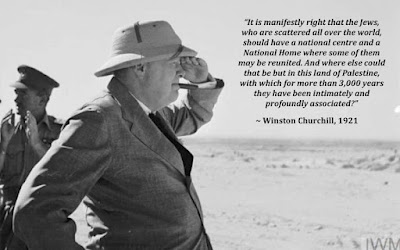A New Study Shows That the U.S. Has More Anti-Semites Than Jews
According to a recent survey conducted by the Antidefamation League (ADL), disturbingly large numbers of Americans answered “yes” when asked if they believe Jews “go out of their way to hire other Jews” or “are more loyal to Israel than to America,” and to other similar questions. Kevin Williamson reflects on these results, and what they say about the persistence of this “strange prejudice.”The real reasons Ken Roth was bounced by Harvard’s Kennedy School
About 3 percent of Americans agreed that all of the anti-Semitic tropes in the ADL survey are “mostly or somewhat true,” suggesting that there are millions more anti-Semites in the United States than there are Jews. This is not entirely surprising, given the small size of the Jewish population.
Anti-black racism has of course been the most consequential prejudice in American history, but anti-Semitism remains strangely vital. Like its cousin, anti-Catholicism, anti-Semitism is more than a prejudice and more than a visceral hatred—it is, in its most extreme form, a kind of “theory of everything” in politics. Anti-black racism may exist with or without an attendant conspiracy theory, but anti-Semitism is almost without exception rooted in a conspiratorial view of the world. The fact that anti-Semitic incidents are on the rise on college campuses is entirely predictable in that campus culture is as much conspiracy-driven as talk-radio culture or Fox News culture, with different villains and a slightly more refined rhetoric: not “Jews” pulling the strings from the shadows, but “Zionists.”
Williamson also notes the confusion, and the bad faith arguments, that have emerged from the term “anti-Semitism.”
The Semitic languages famously include both Hebrew and Arabic, but also Amharic, Tigrinya, Tigre, Aramaic, and Maltese. But when T. S. Eliot wrote, “But this or such was Bleistein’s way:/ A saggy bending of the knees/ And elbows, with the palms turned out,/ Chicago Semite Viennese,” he wasn’t talking about the Catholics down in sunny Malta.
The claim that Jewish influence and money can force non-Jews to serve the selfish interests of the Jews is, of course, a classic antisemitic trope. In the modern context, this trope usually claims that these Jewish conspirators are doing their dirty work to benefit Israel.Even the PLO knows the Jews are indigenous to Israel - opinion
Roth also claimed that Elmendorf’s decision was “a shocking violation of academic freedom.” Anthony Romero, the executive director of the American Civil Liberties Union (ACLU), agreed, saying, “If Harvard’s decision was based on HRW’s advocacy under Ken’s leadership, this is profoundly troubling from both a human rights and an academic freedom standpoint.”
It appears that Roth and Romero do not understand the nature of academic freedom. An applicant for a fellowship or faculty position does not enjoy academic freedom at the institution—in this case, Harvard—where they wish to work. They have freedom of speech to express their ideology and beliefs like all other citizens, but Roth would not have enjoyed the protection of academic freedom, which would allow him to express his views, no matter how corrosive or biased, until he became part of the Harvard community. Obviously, this never took place.
Moreover, hiring committees normally vet applicants during the application process. It appears that in the initial stages of Roth’s application, the committee inadvertently, or perhaps purposely, ignored Roth’s hostility to Israel. So, it is very likely that when the choice of Roth was made public, Harvard stakeholders had the opportunity to inform the dean about the darker aspects of Roth’s career. Dean Elmendorf then did what the hiring committee at the Carr Center should have done in the first place: Examine HRW’s and Roth’s defective scholarship and singular focus on Israel, objectively.
One particularly grotesque example of Roth’s shoddy scholarship and tendency toward outright falsehoods was a 2021 HRW report titled, “A Threshold Crossed: Israeli Authorities and the Crimes of Apartheid and Persecution,” the title of which makes its content clear.
No apartheid exists in Israel, but that did not prevent HRW from presenting the 217-page report as fact, effectively redefining apartheid to make their case. The Israel-based watchdog organization NGO Monitor, however, produced a report of its own that eviscerated HRW’s libels. NGO Monitor concluded that “the HRW publication is fundamentally flawed, using lies, distortions, omissions and blatant double standards to construct a fraudulent and libelous narrative demonizing Israel.”
“A careful examination of the text shows that HRW conducted almost no primary research,” NGO Monitor noted. “Rather, the text is bloated with cut-and-paste phrases, and quotes and conclusions taken from third-party sources—notably, other political NGOs participating in the same ‘apartheid’ campaign against Israel.”
“The omissions are even more egregious than the errors and misrepresentations, rendering HRW’s report as nothing more than propaganda,” the watchdog group asserted.
To deal with the inconvenient historical fact that Jews are the indigenous population of Israel, the drafters of the PLO charter created an arbitrary dividing line to determine who would be considered a Palestinian. First, the PLO charter deems any Arab who had lived in the entirety of what is now modern Israel prior to the re-establishment of the Jewish homeland to automatically be Palestinian, without regard to whether they were residents in the land. Further, the PLO charter deemed any Arab (but not Jews) born after 1947 to a Palestinian father to be a Palestinian.
Jews, on the other hand, were excised from their own national identity under the PLO charter. Only Jews who had resided in what is now modern Israel prior to “the Zionist invasion” would be considered Palestinian. And what did the PLO even mean when they called it “the Zionist invasion,” 1948 or the 1800s? The latter, of course.
Jews were forcibly removed from Israel after the destruction of the Second Temple and dispersed across the globe, making Palestine, as conceived by the PLO charter, a nearly Jew-free land before the Zionist movement was ever founded.
Imagine if, at the time of the founding of modern Israel, Jews had made a similar declaration with regard to Arabs. To wit, Israel would only recognize those “Arab Palestinians” who resided in the land and identified as “Palestinian” prior to the time of Abraham. This would obviously be an impossibility since the term “Palestinian” was created by the Romans after the Bar Kokhba revolt in around 130 C.E., while Abraham arrived in the Land of Israel approximately 2,000 years before the first use of the term Palestine.
Recently, antisemitic activists have escalated their attacks on Jews, claiming we are “settler-colonists” of a land they call Palestine. In my latest new law review article, I examine the question of colonialism and Israel. Part of my research involved tracing the history of the Jewish presence in Israel and comparing it to the waves of actual settler-colonists, ending with Palestinian Arabs, who displaced the indigenous Jewish population.
The only way that anti-Israel activists can strip Jews of our status as the indigenous people of the land and eliminate Jewish self-determination is to do as the PLO charter did: ignore history and designate a time when Jews had been ethnically cleansed from our own homeland as the point in time when Jewish history in Israel starts.
There are settler-colonists in Israel, and they are Palestinian Arabs. Nonetheless, Israel welcomes these settler-colonists and provides them with rights that no other country would provide to invaders and occupiers. It’s time for Palestinian Arab activists and their supporters to accept history and thank Israel for the gracious hospitality extended to newcomers.
Based on a true story. Israel has never occupied another people’s land in all her 4,000-Year recorded history; Israel is the world’s most accused country of illegally occupying another peoples’ land.
— Joseph Shellim (@PhotoshopTruth) January 17, 2023
Ten Deceptions: https://t.co/4qiCALoxOJ #israel #palestine

































